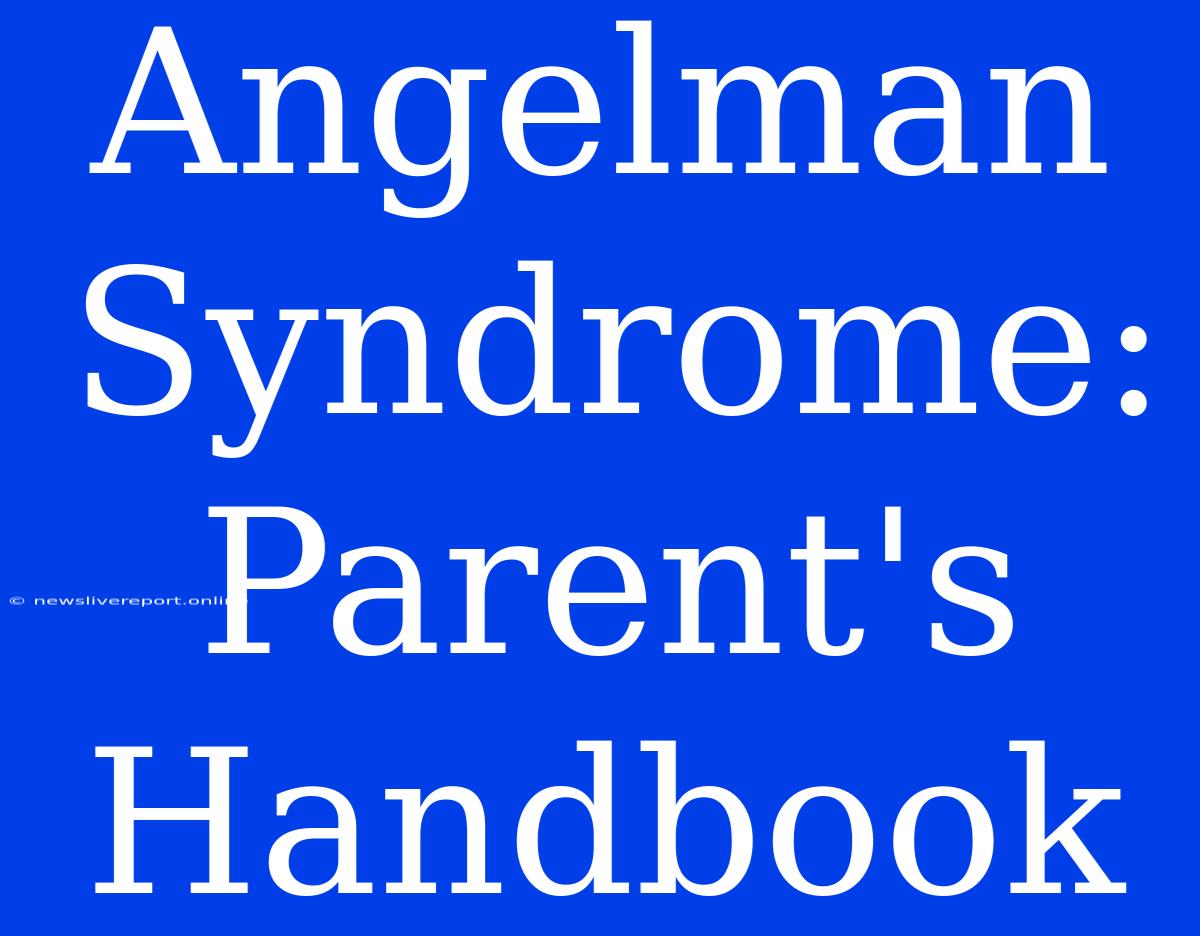Angelman Syndrome: A Parent's Handbook
Angelman Syndrome (AS) is a rare neurogenetic disorder that affects a child's development and overall well-being. This handbook aims to provide parents with a comprehensive resource for understanding AS, navigating its challenges, and supporting their child's growth.
What is Angelman Syndrome?
Angelman Syndrome is caused by a genetic mutation on chromosome 15. This mutation disrupts the production of a protein called UBE3A, which is essential for brain development. As a result, children with AS often exhibit a wide range of symptoms, including:
- Developmental delays: These may include delays in speech, motor skills, and cognitive development.
- Intellectual disability: While the severity of intellectual disability varies, individuals with AS typically have moderate to severe intellectual impairment.
- Characteristic facial features: These may include a wide mouth, protruding tongue, and almond-shaped eyes.
- Movement and balance issues: Individuals with AS often have difficulty with coordination and balance, leading to unsteady gait and jerky movements.
- Smiling and laughter: Children with AS often have a happy and expressive demeanor, frequently smiling and laughing spontaneously.
- Speech difficulties: While they may have difficulty speaking, individuals with AS often develop their own unique forms of communication, such as using gestures and sounds.
- Sleep problems: Sleep disturbances, including insomnia and sleepwalking, are common in individuals with AS.
Diagnosis and Treatment
Diagnosis of Angelman Syndrome typically involves a combination of genetic testing, clinical observation, and evaluation by a specialist. There is currently no cure for AS, but early intervention and ongoing support can greatly improve a child's quality of life. Treatment options may include:
- Physical therapy: To address movement and balance issues.
- Speech therapy: To improve communication skills.
- Occupational therapy: To develop daily living skills.
- Behavioral therapy: To manage challenging behaviors.
- Medication: To address specific symptoms, such as seizures or sleep disturbances.
Living with Angelman Syndrome
Parenting a child with Angelman Syndrome can be challenging, but it's also incredibly rewarding. Here are some tips for parents:
- Embrace your child's individuality: Celebrate their unique personality and strengths.
- Seek support: Connect with other families through support groups or online communities.
- Advocate for your child: Be an active participant in their care and ensure they receive appropriate services.
- Focus on their abilities: Encourage their interests and help them develop their skills.
- Create a loving and supportive environment: Provide a nurturing environment that fosters their growth and independence.
Resources and Support
- The Angelman Syndrome Foundation: This organization provides information, resources, and support for families affected by AS.
- The National Angelman Syndrome Foundation (NASF): This organization offers resources, research, and support for families and individuals with AS.
- The Angelman Syndrome Association of Canada: This organization provides support and information for families in Canada.
Remember: You are not alone in this journey. There are numerous resources available to help you understand and support your child with Angelman Syndrome.
This handbook is a starting point for understanding Angelman Syndrome. It is essential to consult with healthcare professionals for personalized advice and support. By understanding AS and advocating for your child, you can help them live a fulfilling and meaningful life.

